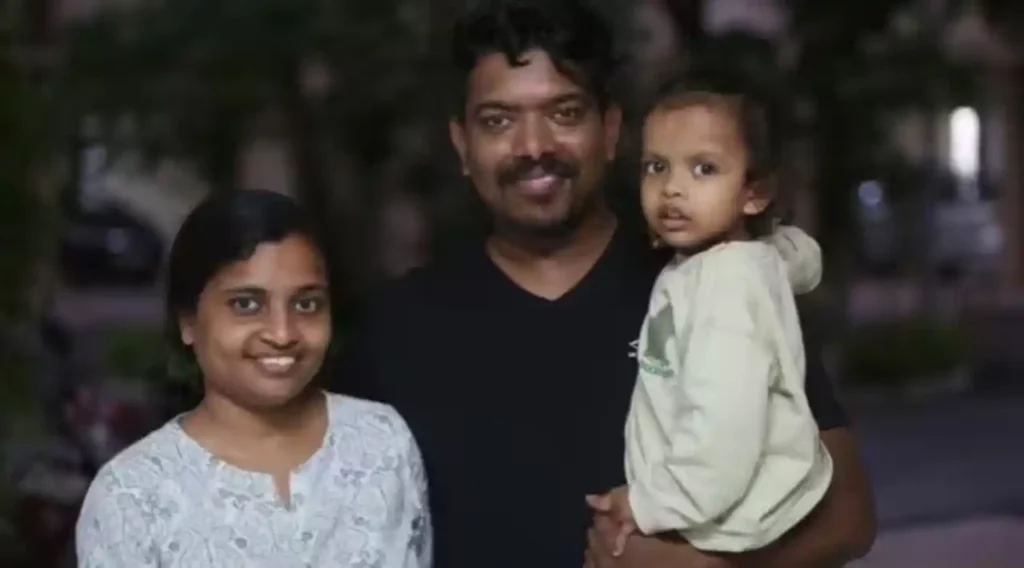Mayank Prajapati, a 33-year-old freelance interior designer in Gurgaon, India, has perfected the skill of balancing his many responsibilities. He works as a committed babysitter throughout the day, watching over his two-year-old son while his wife Shweta, a business analyst at the adjacent American Express office, attends to her professional obligations. But as the sun sets and Shweta heads back home, something changes. From the comfort of his PC room, Mayank Prajapati transforms into a Street Fighter and engages in combat with opponents in a virtual arena.
Mayank will create history this month when he joins India’s first squad of 15 esports competitors at the Asian Games in Hangzhou.
In the demanding world of esports, where there is a growing list of accessory requirements for players to succeed in a brutally competitive atmosphere, Mayank praises his wife Shweta as his guardian angel. “Family support is crucial when pursuing an esports career in India. I don’t think it would be feasible without their support. They are the ones who pay for things like high-speed internet, powerful gaming laptops, and even expensive gaming gear like the headphones I’m wearing right now. In an exclusive interview with The Indian Express, Mayank says that his wife bought those items for him.
Another crucial component of Mayank’s existence as an esports athlete is time management. “Even for practise sessions, you need unwavering family support,” he admits. “When my wife is at work, I am in charge of looking after my child, and I frequently forgo a few hours of sleep in favour of my four to five hours of practise. It’s all worthwhile, though.
Sacrifices for the Asian Games
The Prajapati family has made sacrifices along the way, but there have been moments that have made it all worthwhile, with Mayank’s qualification for the Asian Games being the most crucial. Mayank vividly recalls the exhilarating moment he experienced when he heard his wife shouting in excitement from another area of the house when he was playing during the qualifications.
She was ecstatic. She was watching the livestream while I was in another room because the qualifiers were held online. I heard her scream after I had finished my set. When I realised she was aware of my eligibility for the Asian Games, Mayank relates.
Related: Indian Esports Team’s Quest for Glory: Asian Games 2022 Schedule and Prospects

The interesting journey of Mayank Prajapati and Street Fighter offers insight into the changing Indian gaming market. Possessing a gaming system at home was a privilege for a child of the 1990s like Mayank. But since he was raised in the nation’s capital, he had access to arcades, which were quickly becoming a favourite hangout for young gamers. According to Mayank, “There was an arcade close to my area, and we used to spend 6-7 hours there playing games. I used to spend all of my time in video game stores while pretending to my parents that I was going to school. He came upon a number of games, one of which was the two-player fighting game Street Fighter.
In a decade, there have been substantial changes to the gaming industry. Arcade audiences decreased as personal computers became more accessible to the middle class, and demand for titles like Street Fighter and Tekken decreased. The latest craze was single-player shooting games, which Mayank welcomed.
However, Mayank’s gaming career took a change when he unintentionally bought Street Fighter 4 online. “At the time, I wasn’t aware that there was a cash-on-delivery option,” he explains. I didn’t mean to order Street Fighter, and there wasn’t a confirmation dialogue either. But because it only cost 499 rupees, I reasoned, “Why not give it a shot?” The direction of his life was altered by that unplanned choice.
Today, Mayank Prajapati and the other Indian esports competitors find themselves in a predicament. The Asian Games’ decision to include esports as a medal event offers a chance for participants to confront historical cultural biases. Mayank speaks strongly about the discussions the Indian esports team has had with the Esports Federation of India since he is aware that a medal in Hangzhou might be worth more than gold.
For all of us to practise successfully, we require faster internet, gaming chairs, dedicated practise spaces, and 20 to 30 high-end PCs. We are hoping that the government will finance us,” emphasises Mayank. This appeal is reminiscent of his own experience, in which he had to persuade his deceased mother to buy him a new computer right away after graduating from high school. This decision helped launch his esports career.
Mayank Prajapati’s transformation from a babysitter to a Street Fighter is a tribute to the changing esports scene in India as well as a tale of personal development and tenacity. With the Asian Games just around the corner, Mayank and his colleagues are prepared to make their mark while vying for support and recognition in a sport they are fervently committed to.
In case you missed it:




